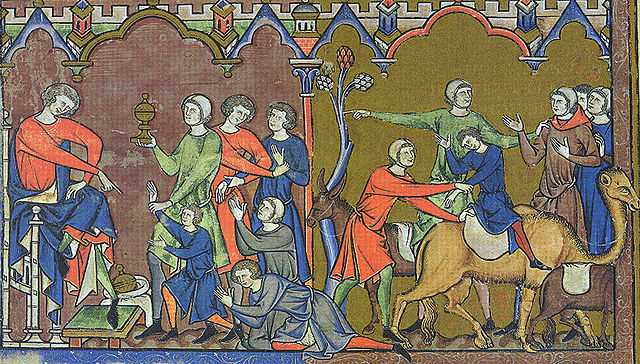This week, most Jewish and Messianic congregations around the world are reading the Torah portion known as Vayechi (pronounced vah-yeh-khee), which is Genesis 47:28-50:26. This passage describes Jacob’s blessing of Ephraim and Manasseh and his prophecies over all twelve of his sons. Reading it put me in mind of an ancient document known as The Testaments of the Twelve Patriarchs, which most Christians have never even heard of.
The Testaments is a collection of the last wills and testaments of the twelve sons of Jacob. Each contains a summary of the good and bad deeds of the author, moral homilies, prophecies of the Messiah and the tribe’s future, and a final exhortation to good deeds and national cohesion. They were written in Hebrew, most likely in the second or third century BC, and probably include edits made by a Priest sometime during the period of Herod’s Temple before Yeshua (Hebrew for Jesus) was born and by a Messianic Jew sometime in the first century after Yeshua’s resurrection. Although they were almost certainly not written by Reuben, Simeon, Levi, etc., they are still very interesting for their moral and historical content.
One interesting thing to consider is the influence of history and perspective in the emphasis of each brother’s moralizing. For example, Reuben’s great failing was in his inability to control his physical passions, and so he cautions the reader to maintain strict boundaries between the active spheres of men and women so as to avoid being tempted to fornication. Considering his perspective, when he says “Women are evil,” what he really means is that a man with his weaknesses must be on his guard around women, especially those women who themselves might be tempted to stray. Reuben knew that he was an easy mark for a flirtatious woman and so calls all women “evil” in self-defense. I think most of us have this tendency to inflate our own flaws to the level of a universal principal. We need to keep this in mind when we are tempted to judge another person harshly for what might actually be a fairly minor offense.
You can read more about the Testaments here and read the full version here or get it on Kindle at Amazon.
I’ll be tweeting quotes and paraphrases from the Testaments of the Twelve Patriarchs with the hashtag #12Patriarchs all this week. Follow me on Twitter and join in the conversation!



